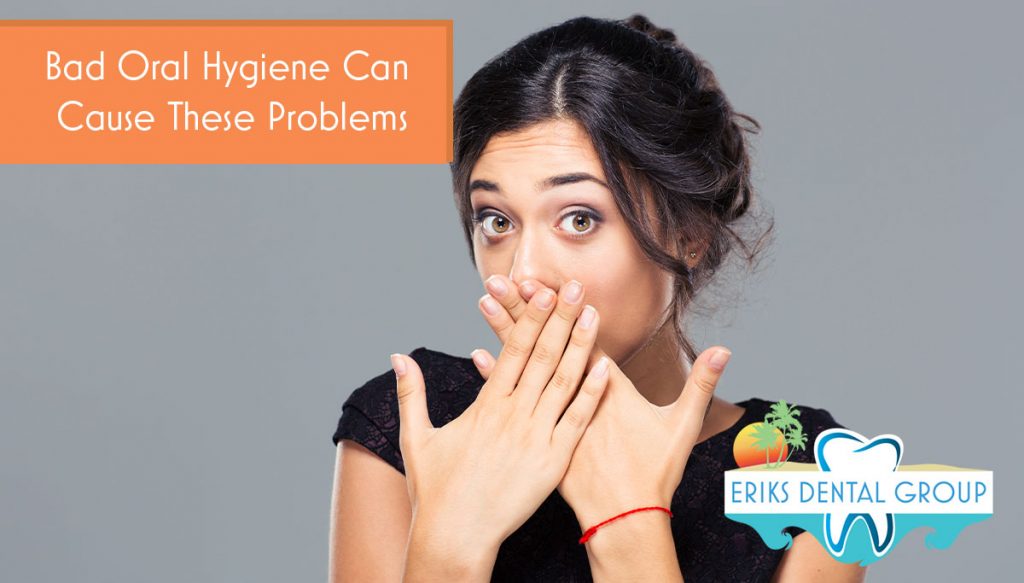A common misconception about oral hygiene is that it only affects your mouth. The opposite is actually true: if you don’t take proper care of your teeth and gums, it’s possible to develop other health complications elsewhere in your body over time. Read on to learn more about the issues that poor oral health can cause, as well as other dental tips, from the experts at Eriks Dental Group.
The Connection Between Oral Health and Overall Health
Your mouth, like other parts of your body, contains bacteria: most of which is harmless. But your mouth is also an “entry point” that leads to your respiratory and digestive tracts, where bacteria can spread and lead to illness. Your best defense against these conditions are good oral hygiene practices, like regular brushing, flossing, and cleanings with the dentist. Failure to maintain good oral health can lead to decaying teeth, gum disease, and more.
There are some medications that decrease saliva flow, such as painkillers, decongestants, and antidepressants. Saliva is what helps neutralize the acids made from oral bacteria and helps wash away your food, so not having enough saliva makes regular brushing and cleanings even more important.
Health Conditions Linked to Poor Oral Health
Good oral hygiene practices can prevent the following conditions:
Endocarditis
This condition involves an infection in your heart valves. It happens when germs and bacteria — many of which come from the mouth — spread through the bloodstream and get attached to different linings and chambers of the heart.
Cardiovascular Disease
Admittedly, the connection between oral health and this disease isn’t completely understood. However, conditions like heart disease, clogged arteries, and strokes are linked to infections and inflammation that can be caused by oral bacteria.
Pneumonia
When bacteria in the mouth gets into the lungs, you not only risk pneumonia, but other respiratory conditions.
Diabetes
Diabetes can put your gums at risk of disease since this condition reduces your body’s resistance to infection. In fact, gum disease is quite common, and often severe, in people with diabetes. Regular dental cleanings and good oral hygiene habits can actually help improve control of diabetes.
Osteoporosis
This condition, which weakens the strength of the bones, has a direct connection to tooth loss as well. In fact, sometimes the medications used to treat osteoporosis can damage jaw bones, which can then damage the teeth.
Practicing Good Oral Hygiene Habits
One way to ensure good health is to take care of your teeth and gums. In between regular cleanings at the dentist, it’s important to brush your teeth at least twice a day. You may want to consider upgrading your regular toothbrush to an electronic one, which has rotating bristles that are more effective at getting plaque out of hard-to-reach places.
Speaking of hard-to-reach places, flossing daily will remove plaque that your toothbrush can’t get to in between your teeth. After brushing and flossing, rinse your mouth with mouthwash to remove any additional food particles. Be sure to replace your toothbrush or brush head every few months, especially if the bristles start to look worn.
Another critical part of oral health is your dietary choices. Consider limiting the number of sugary drinks and snacks you consume. It’s also a good idea to avoid tobacco in all forms.
Oral Hygiene Experts in Boynton Beach
Eriks Dental Group is proud to serve the residents of Boynton Beach. With a variety of dental services and compassionate staff, you can find comprehensive oral care all in one place. Call us today at 561-733-4004 to schedule an appointment.

